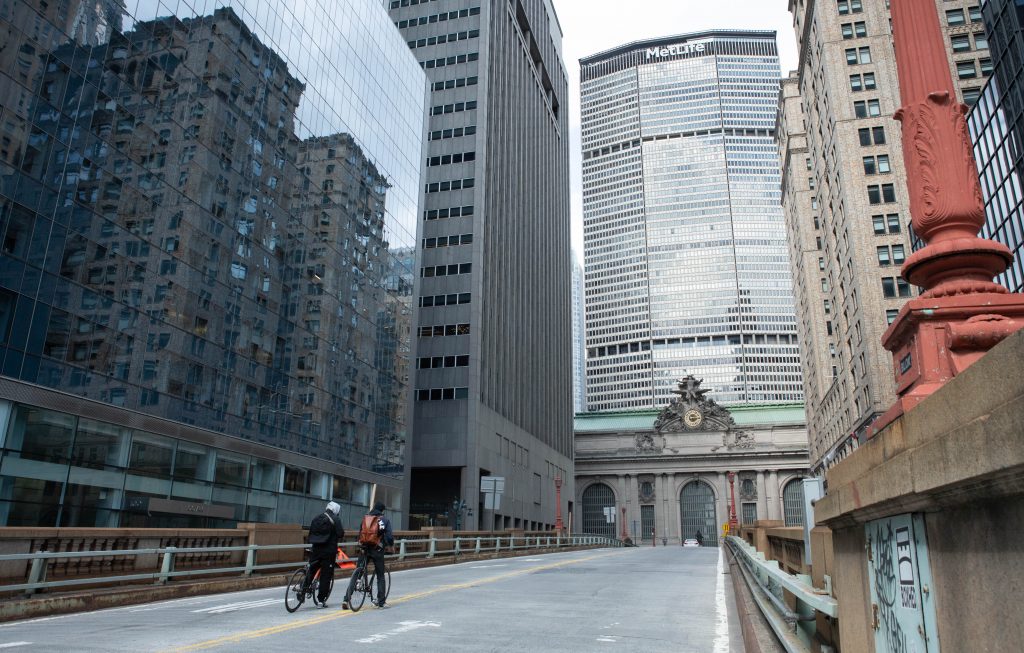Text: Žikica Milošević
Welcome to the 21st century, 20 years later than expected
When the Berlin Wall fell, from 1989 to 1992, The Scorpions were singing „Wind of Change“. It seemed so dramatic – the whole world we knew was falling apart. For some, it was terrible. For some, exciting and promising. For some, eerie. For some, extatic. And we have expected the things to get better very soon. They did not. OK, maybe in America, with dot.com bubbles – they even branded the 90s “decade that connected us”. Basically, it tear us apart, with new borders, frontlines, poverty and class lines.

ONCE IN 100 YEARS, NOT EVEN LIFETIME
But we expected the things to change rapidly maybe in the 21st century. They did not. So we were patient. Last year, everyone said that a year written as “twenty-twenty” must have something symbolic in it. The euphoria for change was not like the “millennium fever” in 2000, but changes were announced. No one expected the changes to be so dramatic. No one expected the story from 100 years ago to be repeated, when the Spanish flu disrupted already completely disrupted life after the First World War, wiping out millions of lives and entire economies. The weakest suffered again – the old, already sick of other “comorbidities”, as it is professionally called, the poorest. The redistribution of wealth from street vendors, and manual workers who had to show up on the spot, in favor of tech giants and people like Jeff Bezos from Amazon, was spectacular in 2020. Such profound changes happen once in 100 years.
HOW DID SOCIETY CHANGE?
Society has undergone sudden changes. All the changes that we thought they would experience before, but social sluggishness, in general, slowed them down, the sluggishness of capitalism itself, which was good anyway. But now that mobility has become impossible, and contact has become dangerous, we have remembered that we have the tools to make our “futuristic” business possible. Zoom-conferences, Skype-interviews, work from a tracksuit and without makeup. Without wasting hours and hours in transportation just to get to the office. No fast food. It turned out that 80% of employees are satisfied with working from home. It turned out that a bunch of companies do not want to return to the old mode of operation. It is already rumoured that large office buildings are a thing of the past. They say that smart companies, those with pinball machines, billiards, a relaxed atmosphere, gyms and darts, such as Google or Facebook, are also endangered. Although less. It is believed that a large number of employees who do not have to come to work will continue to work from home. Those who are more important will come to work once or twice a week.
The 21st century has finally begun, with 20 years of delay
But, we all miss street vendours, if not the street hustle. The small restaurants and cafes, coffee breaks and after-work beer. Nostalgia might prevail in some areas. The people are craving for each other, spooked by the sudden death of spontaneity.
WHAT WILL CHANGE? WHAT CHANGES WILL STICK?
Cities will change. New York has become a shadow of itself, but it will recover. Like the other big cities. But, they will never be the same, never so overcrowded. Public transportation will change. People will want more to live in small towns and in nature and to have good transport links to big cities. It will be all like in the “Minority report” – face-recognition cameras (not the eye-recognition, perhaps), slums with no hi-tech gear, and secluded comfy places for the rich and those who can afford it. Very soon. But in the meantime, the people will try to find their peace. To buy a house with the garden or the backyard. Because the trauma of the lockdowns will stick and linger. The hi-tech gear like computers and internet will be crucial, like never before. 5G will make us omnipresent. We could be in Sri Lanka and work from there. The appeal of the so-called First World will be diminished. Tech-acceleration will occur. There has been tech-acceleration, already. But this time, it will be serious.
Jobs will be at a distance, although not all – many will long for their colleagues and the atmosphere in the offices. Business travel will be reduced and meetings will be online. Travel will be closer to home. But, the people crave for travelling. They will flood airplanes, airports, trains, tourist destinations in 2021. It will be newly-found tourist frenzy. Concerts will erupt. The cars will become increasingly electric. The climate and health will be central issues as populist-fuelled and big-money-backed leaders demise. The future we all hoped for will finally knock on the door.
It was not 2000 that was the year of the now era. It was 2020. The 21st century has finally begun, with 20 years of delay. Welcome.